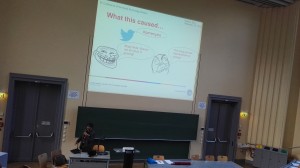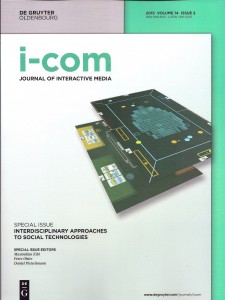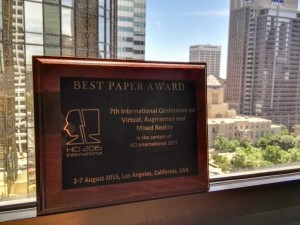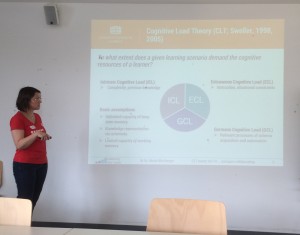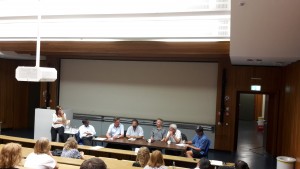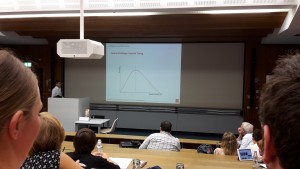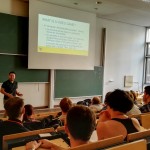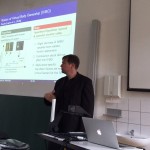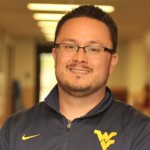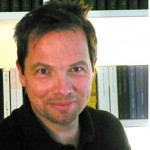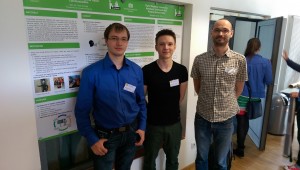On September 8, 2015, CrossWorlds member Alexander Skulmowski attended the symposium Embodied Cognition in Multimedia Learning in Rotterdam. The symposium was organized by researchers from Radboud University and Erasmus University Rotterdam. Alexander presented his poster entitled “Embodied Cognitive Load Theory: Introducing a cost-benefit model for embodied interactions.”
The symposium featured a variety of talks related to the role of gestures, animations and other embodiment aspects on learning, among others by Arthur Glenberg. In addition to the talks and posters, demos of gesture-based interactions were presented.
